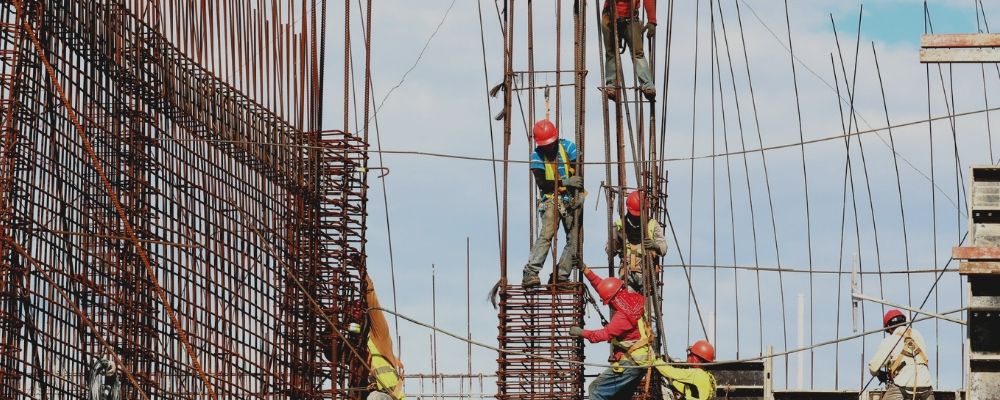Who administers the NSW workers compensation scheme and how?
NSW Workers Compensation
To find out an answer we went to see Craig McBride – Manager of Premium Services at icare. Here is what we learned from talking to Craig but please listen to the episode above since Craig explains this much better than we ever could.
To listen while you drive, walk or work, just access the episode through a free podcast app on your mobile phone.
Icare
The NSW workers compensation scheme is administered through icare. It covers more than 326,000 public and private sector employers and their 3.6 million employees within NSW.
The more modern term for workers compensation is workers insurance.
Insurance Schemes
All up icare administers five insurance schemes. The NSW workers compensation scheme is just one of them. The five schemes are:
# 1 icare Workers Insurance
Workers compensation insurance to more than 326,000 employers in NSW and their 3.6 million employees. icare is the single largest workers compensation insurer in NSW.
# 2 icare Lifetime Care
Treatment and care to more than 1,300 people who have been severely injured on NSW roads.
# 3 icare Dust Diseases Care
Compensation and support for workers who have developed a dust disease from occupational exposure in NSW.
# 4 icare Home Building Compensation Fund
Help for homeowners to rectify incomplete or defective works done by a builder or tradesperson.
# 5 icare Insurance for NSW
Workers compensation insurance to 193 public sector agencies and their 329,000 workers and 82,000 volunteers across NSW as well as protection of more than $193 billion of the state’s assets, including Sydney Opera House, Sydney Harbour Bridge and critical government infrastructure like schools and hospitals. icare is the largest public sector self-insurer in Australia.
Structure
icare was formed in September 2015 through the commencement of the State Insurance and Care Governance Act.
But this Act didn’t just see the creation of icare. It also enabled the creation of SIRA as wells SafeWork NSW. The aim was to remove the inherent conflict between regulatory and service delivery functions. And to create a clear distinction between regulation and operations.
SIRA stands for State Insurance Regulatory Authority (SIRA) and is the independent insurance regulator. SafeWork NSW is an independent workplace safety regulator.
Governance
icare operates as a Public Financial Corporation governed by an independent Board of Directors. The Board is directly accountable to the NSW Treasurer, currently the Hon. Dominic Perrottet MP. The Treasurer appoints the Board, who in turn appoints the Chief Executive Officer and employs all icare staff.
Finance
icare is financed through premiums without government funding or subsidies. Premiums collected and investment income need to exceed compensation payments and costs.
NDIS
The National Disability Insurance Scheme (NDIS) and workers compensation are two separate schemes. NDIS is a federal scheme while workers compensation is state based. People tend to be covered by one or the other scheme and not by both at the same time.
Employer
A sole trader doesn’t need to take out a workers compensation scheme as long as they don’t employ any employees. The reason is that a sole trader can’t employ him or herself. So there is no employer or employee.
However, as soon as a sole trader pays an employee wages above a certain threshold, they need a workers compensation policy for their employees.
A company needs to take out a workers compensation whenever somebody actually works in the company to derive active income. This applies if the sole director is the only one working in the company. The company is the employer, so the director can be an ’employee’. The only exception is if the company only derives passive income like interests or dividends.
MORE
Disclaimer: Tax Talks does not provide financial or tax advice. All information on Tax Talks is of a general nature only and might no longer be up to date or correct. You should seek professional accredited tax and financial advice when considering whether the information is suitable to your or your client’s circumstances.
